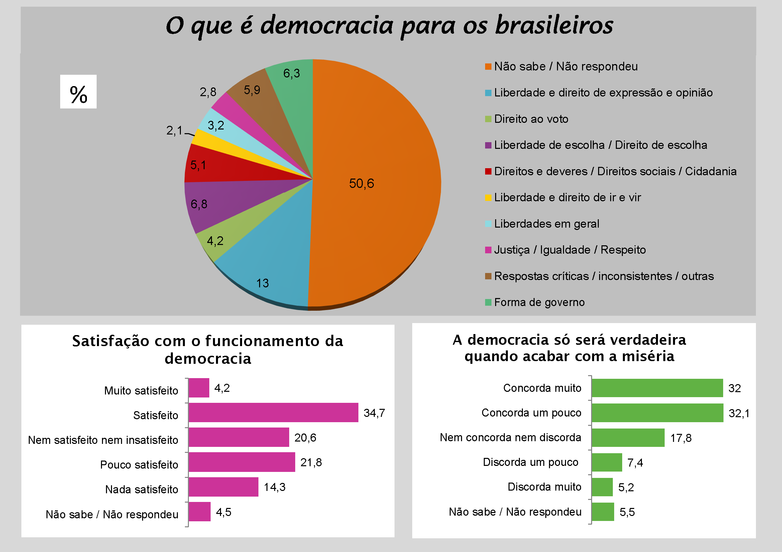Waves
Wave 4 – BES / 2014

BES 2014, the fourth wave of post-electoral research of an academic nature performed in Brazil, was associated with Module 4 (2011–2016) of the Comparative Study of Electoral Systems (CSES) Project of the University of Michigan. The main theme of this module was the analysis of income distribution and social protection policies, in order to understand the voter preferences about policies affecting income and wealth distribution in the context of the global economic crisis. In this sense, this module was designed to understand the representative capacity of the preferences of voters regarding these issues as well as how political institutions condition voters’ reactions to policies of budgetary restraint. Another objective of this module was understanding, from the citizen perspective, how contact between parties and candidates and personal relations can influence electoral choices. The BES-2014 also counted on the participation of researchers and professors associated with universities and research centers around the country and abroad to formulate specific questions aimed at deepening the study of the Brazilian reality, such as the evaluation of representative institutions, the role of the State in regard to the economy and to the development of social programs, the degree of satisfaction with public services, respect for laws and social equality, perceptions of social mobility, and interest in politics and forms of political mobilization, as well as tax assessment and validity of street demonstrations for the improvement of public services.